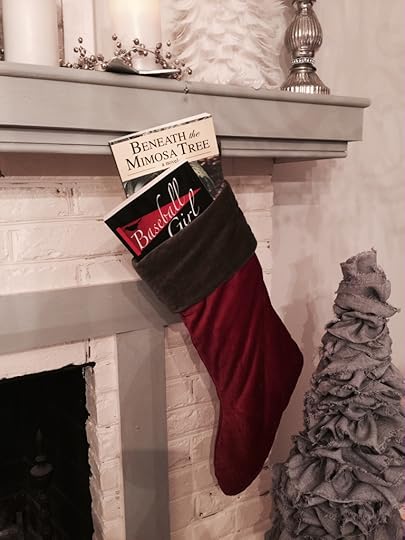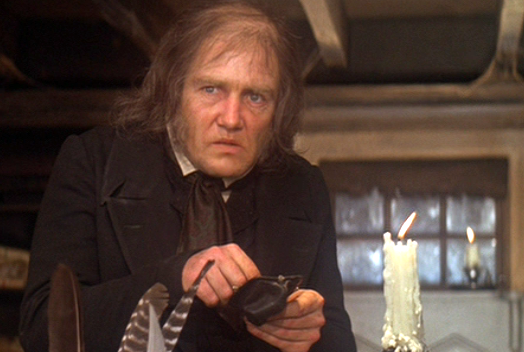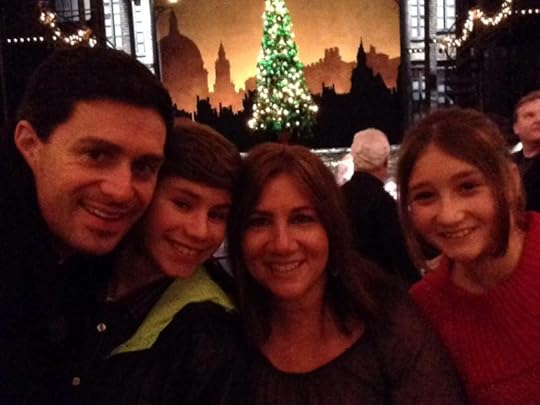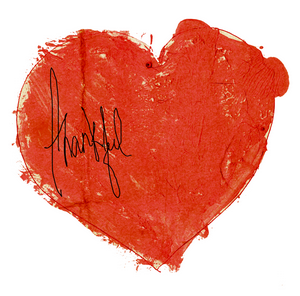Stephanie Verni's Blog, page 71
December 4, 2015
Stuff Those Stockings with Books
 Baseball Girl and Beneath the Mimosa Tree are both available via Amazon and Barnes & Noble.
Baseball Girl and Beneath the Mimosa Tree are both available via Amazon and Barnes & Noble.* * *
This week, I’ve received a couple of nice reviews for Baseball Girl. Ironically, both of these kind words have come from men, which makes me happy. I’m so glad to know men are enjoying the book as much as women; after all, there are three main characters who are men in the book—Archie, Francesca’s dad; Joe, the Blackbirds’ star outfielder; and Jack, a reporter for the newspaper. All three of these men hold special places in our protagonists’ heart.
In my role as a “promoter of reading,” I’d like to suggest stuffing your loved ones’ stockings with books. They make a great gift…one that can last for days, or even in hearts for years to come. When we get the opportunity to power down and enjoy a good book, the pleasure is sweet. Instead of plopping down money on lots of electronics–which are fun, too–save a little bit of cash for books your family, friends, or significant other might enjoy.
I forget who said it, but I read a quote from someone who said, “Books were meant to be written in…make notes in…and comment on the pages.” I really love this. Or, if at the bare minimum you just write your name in the book, it becomes yours to share and pass along to others who might enjoy a good story.
Share the gift of storytelling this holiday season. Writers spend time writing stories for you to read…
We need you.
Filed under: On Life Tagged: Baseball Girl, books, Featured, reading, Stocking stuffer, stocking stuffer books, stockings








December 2, 2015
Let Scrooge In This Holiday Season
 My Favorite Scrooge | Albert Finney in Scrooge the Musical Version
My Favorite Scrooge | Albert Finney in Scrooge the Musical VersionI’m crossing my fingers that my feature writing students will heed my advice and read A Christmas Carol by Charles Dickens. We talked about the book’s timeless appeal: a ghost story wrapped up in the idea of redemption at the holidays. When you study writing, it’s important to study all writers. Stephen King, in his book On Writing: A Memoir of the Craft, strongly urges writers to read other writers. It’s the only way we learn technique, garner ideas, and think about things in new and exciting ways. ‘Tis the season, I say. Plus, we could all use a little reminder of the importance of giving and caring and loving those around us.
“Marley was dead: to begin with. There is no doubt whatever about that…Old Marley was as dead as a door-nail.” (From the opening paragraph of A Christmas Carol by Charles Dickens).

Dickens had the keen ability to write intriguing characters, those that will live on in the hearts and minds of people for generations to come; and Scrooge is simply marvelous. And yet, the brilliance of the novel comes bit by bit, with the Ghost of Christmases Past, Present, and Future all paying our main character timely visits throughout the night. The question for Scrooge is this: Can he change his ways, turn himself around, and become a better person all in one night and will this change last for the rest of his life?
As Scrooge says, “It’s Christmas Day! I haven’t missed it. The Spirits have done it all in one night. They can do anything they like Of course, they can. Of course they can.”
Therein lies the appeal. Show me a person who hasn’t done something in his or her life that he or she regrets, and I’ll show you a ten-legged alien from the planet Outinspace. We fail. We do dumb things. We make bad choices that turn into big mistakes.
Scrooge’s mistakes were just on a grand scale. Yet he repents, changes, and comes to terms with them. He rights his wrongs.
One may question the novel’s incredible, yet simple, theme and whether or not Scrooge’s specters were imagined or real. Did the ghosts actually appear for his salvation? Or, did Scrooge imagine them or dream them in order to save himself?
It really doesn’t matter either way, because what Dickens does so artfully well is he makes us think. He makes us ask ourselves questions such as the following: What would happen if we revisited our own pasts with the Ghosts of Christmas Past, Present, and Future and could clearly see the things we’ve said or done that may have been hurtful or have to examine and scrutinize again and again the choices that we’ve made in life?
Dickens’s brainchild allows us to live vicariously through Scrooge. He had to endure a harsh wake-up call for the sake of us all.
The truth is, when we read the novel, or when we see the film, we are reminded of our own capacity to make small and big mistakes in our lives. We cannot help but glide across the cold, night air with Scrooge as he watches the shadows of his life pass before him, and we are reminded that he represents us.
Moreover, it doesn’t matter how many times I read the book or watch the film (and most especially, at the end of the musical version with Albert Finney), I cry. His change is our change; we have become a part of him, and he has become a part of us. We have been redeemed.
Do yourself a favor and read the book—or watch one of the films. Its timelessness and perfection make it a ghost story that will remain a classic for years and years to come.
***
On a side note, writing A Christmas Carol was good for Dickens’s career and for the Christmas holiday in general. The notion of Christmas as a special, commercial, and magical time of year can be attributed to his artful imagination. You can thank Dickens for promoting Christmas as “a kind, forgiving, charitable, pleasant time,” as was stated by Scrooge’s nephew, Fred, in the text.
Christmas, as it is now, can be attributed directly to Dickens. And it all started with an old miser named Ebenezer Scrooge.
“Scrooge was better than his word. He did it all, and infinitely more; and to Tiny Tim, who did NOT die, he was a second father. He became as good a friend, as good a master, and as good a man, as the good old city knew, or any other good old city, town, or borough, in the good old world.” — Charles Dickens, A Christmas Carol
***
 Our family last year at Ford’s Theatre seeing A Christmas Carol.
Our family last year at Ford’s Theatre seeing A Christmas Carol.One other note: If you live in the Baltimore/Washington Metropolitan area and you have not seen A Christmas Carol at Ford’s Theatre, you are missing one of the best treats of the season. My husband and I went years ago, and last year, we went with our children. We all thought the stage production was absolutely fabulous.
If you don’t live in the area, I highly recommend the musical version of Scrooge with Albert Finney and Sir Alec Guiness. For classic, non-musical versions, try A Christmas Carol with George C. Scott as Scrooge, or the older version with Alastair Sim.
Filed under: On Life Tagged: A Christmas Carol, Albert Finney, am writing, Christmas Ghost Story, Ebenezer Scrooge, feature writing, Featured, ghost story, redemption, Scrooge, Sir Alec Guiness, specters, spirits, Stephen King, students, The Musical, writers, writing








November 29, 2015
My Holiday Archenemy
 Moments before the tantrum.It’s Sunday, and a few days ago we all gave thanks. Truly, I am thankful for so many things in life. I’m blessed beyond measure, and as the holiday season calls upon us to be merry and bright, there is one thing that can inevitably turn me into a Grinch or a Scrooge, if only for a few shining moments until the moments pass.
Moments before the tantrum.It’s Sunday, and a few days ago we all gave thanks. Truly, I am thankful for so many things in life. I’m blessed beyond measure, and as the holiday season calls upon us to be merry and bright, there is one thing that can inevitably turn me into a Grinch or a Scrooge, if only for a few shining moments until the moments pass.
Illuminating, yes. Infuriating, maddening, vexing, exasperating…yes to all, as well. Of what do I speak, you may ask?
Every year, I vow to tackle this nemesis of mine, and yet, I become lazy and complacent; when the happy season is over, I just want to put the Christmas decorations away, and so I neglect to properly disassemble and store—in a painstakingly, individual way—the thing that can provoke me to throw an adult-sized tantrum replete with lots of f-bombing and eccentric gesticulating to go along with it.
I speak of my archenemy, of course.
Christmas Lights.
Indeed, these sets of twinkles are meant to light up our homes, make them feel warm and cozy, add ambiance, and allow us to welcome the glow of Christmas into our hearts and lives during the holidays.
But seriously, there has got to be a better design for Christmas lights, and even more so, a better way for putting them away to avoid the galling tangling that will inevitably occur the following Christmas season when it is time to unravel them again.
Christmas lights tangle (“What did I do to deserve this? Why are you making my life miserable? Why won’t you just behave already? Why the hell didn’t I throw you out last season?”; these are just some of the more G-rated utterances that might come from my mouth). The bulbs falter. When one light burns out, the rest of the strand is as useless as this fence.
 This fence.For years, I have tackled the Christmas lights, and I have always won out over them in varying degrees. I have tried every trick in the book (you know the tips: wind them around a toilet paper or paper towel roll individually; wrap each strand separately and store in a bag; tie them together with a tie and separate with cardboard, yadda yadda yadda. These techniques require a tremendous amount of patience, organization, and time. When New Year’s Day arrives and I take down all the decor, I usually just throw the damn things in a box. You know. You’re over it. Time to get ready for the Super Bowl party).
This fence.For years, I have tackled the Christmas lights, and I have always won out over them in varying degrees. I have tried every trick in the book (you know the tips: wind them around a toilet paper or paper towel roll individually; wrap each strand separately and store in a bag; tie them together with a tie and separate with cardboard, yadda yadda yadda. These techniques require a tremendous amount of patience, organization, and time. When New Year’s Day arrives and I take down all the decor, I usually just throw the damn things in a box. You know. You’re over it. Time to get ready for the Super Bowl party).
While everyone was posting Christmas tree photos and decorations photos on Facebook yesterday, I was cursing and blasting one of the most important elements of the season. A tree is just not the same without its lights; a front porch or house is not complete without a little twinkle outside; and certainly, Rudolph just wouldn’t be Rudolph if his nose didn’t light up.
I’m calm now; however, I threw about five strands away in my moment of “losing it.” I tossed them into the garbage can triumphantly.
In the end, I will not allow them to get the better of me.
“Come on, Ellie. We’re going to buy new lights. Let’s go,” I shouted victoriously, as I gently forced with great passion the five tangled strands into the trash bin.
“But you just spent all this time on those lights,” she said.
If only I could get back the hours of my life I have spent attempting to replace bulbs and untangle my archenemy.
And so, my dear friends, I wish you well. May your days be merry and bright, and may all your little bulbs work right.
 Our Rudolph. So thankful his nose does not require a bulb.
Our Rudolph. So thankful his nose does not require a bulb. The front requires a lot of twinkle.
The front requires a lot of twinkle. Our fresh tree shimmers and glows in our family room.
Our fresh tree shimmers and glows in our family room.
 Added the last strand of garland with–you guessed it–more lights.
Added the last strand of garland with–you guessed it–more lights.  The new strands I bought behaved as they came out of the box. What they will do next year, no one knows.
The new strands I bought behaved as they came out of the box. What they will do next year, no one knows.
Filed under: On Life Tagged: archenemy, Christmas, Christmas lights, Christmas Tree, Featured, frustration, holiday decorating, holidays, twinkle lights








November 18, 2015
Thankfulness, Doug Flutie, and The Power of Love
 The scent of a familiar cologne wafting into the room. An old song playing on the radio. The smell of spaghetti sauce cooking on the stove, the aroma of garlic filling the air. A black and white photograph of your great-grandparents and grandparents in a photo album together, smiling. These things remind us of people, and so…
The scent of a familiar cologne wafting into the room. An old song playing on the radio. The smell of spaghetti sauce cooking on the stove, the aroma of garlic filling the air. A black and white photograph of your great-grandparents and grandparents in a photo album together, smiling. These things remind us of people, and so…
Thanksgiving is coming, and it’s a time to stop and be grateful. To count our blessings in a world that at times seems dark and gloomy. It’s a time to be thankful for what is now at present. But it’s also a time to be thankful for things that were. For relationships that you’ve built and treasure and can’t live without; for relationships that you’ve lost along the way for one reason or another, for they were meaningful at one time; and for the precious time you got to spend with loved ones and dear friends.
I was thinking about the power of love tonight when I read the awful story about Doug Flutie’s parents. After 56 years of marriage, Doug Flutie’s father passed away in the hospital of a heart attack after an illness. An hour later, his mother, who was not in the hospital, died of a heart attack. You hear stories of people who die of broken hearts, who often can’t live without one another for too terribly long after one of them has passed. Johnny Cash is a great example of this scenario among many, many others. This potent thing is a testament to love—to the incredible power of it—and to how some can endure after a loss of that magnitude, but others cannot. (If you want to read a fictionalized version of this story, look no further than Nicholas Sparks’ The Notebook.)
So how did I move from thankfulness to heartbreak and death to love? Because it’s a part of life and what we need to recognize is just how fleeting our time can be. In the wake of the tragedy in Europe, we should be thankful—thankful for our safety, for our loved ones, for our friends, and for the very fine privilege we have here to be free. But it is not enough to just be thankful; be sure to tell people how much you love and appreciate them. How they have mattered in your life. How you are better for knowing them.
I could go on, but I will stop.
I’m so thankful this year. I really have so many things to be thankful for, and if you’re reading this, you are one of them.
Filed under: On Life Tagged: be thankful, Doug Flutie, Featured, friends and family, love, Nicholas Sparks, power of love, relationships, thankfulness, Thanksgiving








November 12, 2015
The Letter in the Desk | An Excerpt | Friday Fiction

* * *
Unfortunately, this week I am too busy to write a new Friday Fiction post. However, I thought I would share a post I discuss with my students in class. I wrote this short piece called “The Letter in the Desk” when I was working on my MFA. The prompt, again from Brian Kiteley, is from The 4 A.M. Breakthrough, which asks writers to “work with a character you’re very familiar with—someone from a novel you’ve abandoned, a series of stories, or at least a story you’ve worked hard on but have not finished. The character is waiting for someone she knows very well in something like a study or living room. The wait is long. The event these two people are go to is not pleasant. The character gets restless waiting for the friend and begins opening bureau drawers, just browsing through stuff, doing a little snooping around. The character comes upon a sealed letter, addressed to her.”
Write it.
As I was just beginning to write “Beneath the Mimosa Tree” back in 2010, and as the story had been in my head for about 20 years, I decided to write the pinnacle moment for Michael and Annabelle. The first version here is the result of the prompt; the second version is what actually made it onto the pages of my novel.
The Letter in the Desk (The Prompt Exercise)
Mr. Contelli escorted me into the library, a place I hadn’t been in years. It looked the same, though shelves that had previously been empty were now fully stacked with hardback books. I always loved this place; the way the light came streaming through the enormous picture windows that overlooked the Severn River made it a pleasant place to work. The crystal chandelier centered over the desk added a touch of femininity to a mostly masculine room. It had always been Michael’s favorite.
“Let me tell him you are here, Annabelle. I think he was just going in the shower,” Mr. Contelli said to me, trying not to feel awkward.
His dislike for me still seemed apparent, and I tried not to let that dissuade me from pursuing Michael’s forgiveness. When I had asked him yesterday at the foot of the driveway if he would attend Christmas Eve mass with me, I caught him off-guard. This had been a tradition of ours. Until yesterday, we had not spoken in ten years, and now I was standing in the library of his parents’ lovely home, about to ask him to forgive me for what I did those many years ago.
Mr. and Mrs. Contelli poked their heads in the door. “Michael will be down in ten minutes. Make yourself comfortable. We are heading out now and hope to see you there,” Mrs. Contelli said.
“Thank you. See you there.”
I heard the front door shut, then the car start.
There was a drawer in the desk where Michael used to keep all of our work—his sketches, my poetry, our letters. I wondered if it were still in there. It was always known as “Michael’s drawer,” and others were asked to keep out. I fashioned myself in the seat of the desk, and slowly opened the drawer. Deep in the back of it, behind a small box of rubber bands, staples, and Elmer’s glue, was a shallow box. I could still hear the shower water running, so I pulled it out.
It was just as I remembered it. I felt ridiculous, like an inexperienced detective or novice spy. I noticed all the letters were opened, and I started to peruse them. The first letter was from Michael to me when he had first been accepted at NYU. It read, “Dear Annabelle, Can you believe it? I am so excited. I have always wanted to live in New York. I can’t wait for you to visit!” The second one I saw was from me to him; my bad poetry was something that belonged shoved in a box in the back of a desk. It pained me to read it.
And then I came across an unopened letter addressed to me from London. There was postage on it, but it had not been mailed. My hand was shaking and I grabbed the letter opener. I gently opened it, unfolded the letter.
Dear Annabelle,
It’s been three months since you left me waiting for you at the airport and I’m still hoping you’ll explain it to me. I’m in London now. I have a job at The London Times editing copy, and am pursuing my master’s degree at The University of London. I am moving along without you, though it doesn’t feel the same. What were originally our plans are now just mine, and I feel empty and lonely without you.
I hope this letter reaches you at a time when you are able to think about what happened and can explain why you chose not to marry me. Any communication from you would be welcomed. I always assumed we meant more to each other than what has become of us.
I love you…always,
Michael
I stared at it, tears rolling down my face, ashamed, even after all this time, at what a coward I had been.
“Okay,” he said cheerfully as he opened the door. “Let’s get this Christmas Eve celebration underway. This will be interesting.”
He caught a glimpse of me standing there crying as I held the letter. I collapsed into the chair. “I’m so sorry,” I said, barely getting the words out through tears. “I’m so sorry.”
* * *

The Final Version of The Letter in the Desk | An Excerpt from Beneath the Mimosa Tree
Mr. Contelli was wearing his coat, a red scarf wrapped around his neck, and was ready to head over to my parents’ house when he answered the door.
“Is Michael home?” I asked. I was flustered, but there was something in his eyes that told me he sympathized with me at that moment.
“Let me tell him you’re here, Annabelle. I think he was just going into the shower,” he said. He was doing his best to make me feel comfortable.
He disappeared upstairs to check and then came back down and escorted me into the library, a place I hadn’t seen in a very long time. It looked the same, minus the couch under the window; the previously empty shelves were now fully stacked with hardback books and several knickknacks. I had always loved this place in the daytime; the way the light came streaming through the enormous picture windows that overlooked the Severn River added a sense of serenity to the place. The crystal chandelier centered over the desk added a touch of femininity to a mostly masculine room. It used to be Michael’s favorite place in the house.
“He’ll be down in a few minutes. He asked if you don’t mind waiting,” he said.
“Not at all.”
“Okay,” he said, as I attempted to search for any signs that he might still hold a grudge against me. “I’m going to head over now. I’ll see you in a little while?”
“Yes, you will. Thank you very much.”
The front door shut, and I heard his footsteps marching off across the path to the party.
I stood in the room near the desk and looked around. The Contellis’ home was beautiful, I thought—much simpler than my parents’ home, but with great detail. The fireplaces were etched, the walls showcased stunning crown molding, big and thick, and the floors were worn old pine, with dings and imperfections that gave them character. It was subtle but elegant. The middle drawer in the desk once housed our personal keepsakes—Michael’s sketches, my poetry, our letters. I wondered if our items were still in there. It was always known as “Michael’s drawer,” and others were asked to “keep out.” I fashioned myself in the seat of the desk, and slowly opened the drawer. Deep in the back of it, behind a small box of rubber bands, staples, and dried up Elmer’s glue, was a shallow, old cigar box. I could still hear the murmur of shower water running, so I pulled it out.
It was just as I remembered it. The colors may have been a little faded, but it was still filled with some of our memorabilia. I felt like an intruder, but curiosity consumed me. There were charms and stickers, postcards and photographs. I noticed all the letters had been opened, and I started to peruse them. The first letter was from Michael to me when he had first been accepted at NYU. It read,
Dear Annabelle,
Can you believe it? I’m so excited. I’ve always wanted to live in New York. I can’t wait for you to visit.
—Love, Michael
The second one I examined was from me to him; my sophomoric poetry back then was something that belonged shoved in a box in the back of a desk. It pained me to read it.
And then I came across an unopened letter addressed to me from London. There was postage on it, but it had not been mailed. I stared at it for seconds, minutes. My hands were shaking and I grabbed the letter opener. I knew it was wrong, but I gently opened it, trying to keep it as intact as possible, and unfolded the letter.
Dear Annabelle,
It’s been nearly a year since you left me distraught at the airport and I’m still hoping you’ll explain it to me. I’m in London now. I’ve been working at a newspaper in London; the position doesn’t even have a formal title. My master’s program is going well so far. I’m convinced this was a good decision. I muddle through without you, though it doesn’t feel the same. I think it would have been great to experience all of this together.
I hope this letter reaches you at a time when you’ve been able to think clearly about what happened and can explain to me why you did what you did. It hurt, Annabelle; it still does. Any communication from you would be welcome. I really want to understand. I’m still so angry, I can’t see straight, and some days I’m so mad I don’t know what to do other than to throw myself into my work. But if I did this to you, if the shoe had been on the other foot, wouldn’t you want to know why? Wouldn’t you deserve and require an explanation?
I always assumed we meant more to each other than what has become of us.
Despite it all, I love you…always,
—Michael
I stared at it, the words beginning to blur as tears rolled down my face, ashamed, embarrassed, guilty and disgusted at the way I’d hurt him. I was crying because of the love I had let go of and never had the guts to attempt to rectify. Reading his words—his thoughts—was agonizing. A lump sat in my throat, and I stood as I heard his footsteps approaching from the hallway.
“Sorry to keep you waiting,” he said cheerfully as he entered the room, rubbing his hands together, with a forced smile on his face. “I just needed to…”
He abruptly stopped speaking and looked at me quizzically when he saw me standing there crying, the letter in hand. I collapsed into the chair.
“I’m so sorry,” I said, barely choking the words out through tears, unable to look him in the eyes. “I’m so sorry, Michael.”
Copyright 2012 | Stephanie Verni | Beneath the Mimosa Tree
 A pic of me from the day I first held the proof copy of Beneath the Mimosa Tree in my hand.
A pic of me from the day I first held the proof copy of Beneath the Mimosa Tree in my hand.Filed under: On Life Tagged: am writing, author, Beneath the Mimosa Tree, Brian Kiteley prompts, Featured, Friday Fiction, indie author, Letter in the Desk, letters, Love letters, Michael and Annabelle, storytelling through letters, writing








November 8, 2015
Autumn is Always a Good Time to Fall into a Story
 My first novel, Beneath the Mimosa Tree, takes place primarily from September through New Year’s Eve. I’ve always loved the season of autumn, so I decided to set the scene in beautiful Annapolis, Maryland, my hometown. When one of my dear friends and mentors told me that Annapolis came to life on the pages and was like another character in the book, I felt like a million bucks. While the overall theme of the novel is forgiveness, my hope is that you’ll fall as much in love with Annapolis as I did so many years ago.
My first novel, Beneath the Mimosa Tree, takes place primarily from September through New Year’s Eve. I’ve always loved the season of autumn, so I decided to set the scene in beautiful Annapolis, Maryland, my hometown. When one of my dear friends and mentors told me that Annapolis came to life on the pages and was like another character in the book, I felt like a million bucks. While the overall theme of the novel is forgiveness, my hope is that you’ll fall as much in love with Annapolis as I did so many years ago.
Filed under: On Life Tagged: Beneath the Mimosa Tree, Contemporary Romance, Featured, First novel, Michael & Annabelle, stories, storytelling








November 6, 2015
Friday Fiction – The Beginning of a Love Story
 * * *
* * *
This week’s prompt asked us to begin with one simple sentence, which was this:
The old house, with its wildly overgrown garden, was silent, secretive.
Clearly, the weather on the East Coast this week influenced this story. Featured among the paragraphs are falling leaves, browning hydrangeas, and a good breeze. While it’s a little warmer here today than it is in the story, I was inspired mostly by the scenery and then by a love story. I wanted to give the first line of the prompt, with its use of the word “secretive” some clout; I wanted this to feel a bit secretive, haunting, and sad.
So, here it goes. Here’s this week’s prompt, which sits at 621 words of flash fiction.

* * *
The Milk Crate
The old house, with its wildly overgrown garden, was silent, secretive. I made my way along the side of the house, the hydrangeas overgrown and brown, as autumn had set in and leaves covered the lawn. The rickety fence along the property line in the backyard with its peeling white paint seemed to bend in places, and the main gate was hanging by its top hinge. The only sound I could hear were the rustling leaves, and they fell gently to the ground, as the constant breeze purred. The garden must have been wild in the summer; the flowers were wilted, dead and devoid of any respendent colors. For a moment, I remembered planting the freesia and four o’clocks; however, that time seemed to belong to someone else, not me.
How long had it been since I’d set foot on this property?
I walked closer to the large, picture window that at one time had spectacular views looking out over the hills, until the trees grew so big you could no longer see the rolling knolls. I stood on my tip-toes and tried to peer inside. I’m not sure what I hoped to glimpse on that November day, and what had compelled me to visit the house that particular afternoon; it was beyond my comprehension. I had driven four hours straight, alone, nonstop, just to see it again and walk the grounds. I’d never done anything so impetuous ever. Here I was, a Peeping Tom, wrapped up in memories and pain and nostalgia.
My hair blew in the wind, and I lost my balance for a second. The house howled for a moment, as if it were crying, trying to send me a message, and I felt a chill go up my spine. If only I had made the right choice, said how I felt, told him I loved him and loved him and loved him. If only I had stayed and tended the gardens and walked the creek and accepted a simpler way of life in this town. If only I’d not been afraid.
I’d not eaten anything in hours, my stomach too nervously twisted and tied to even think about it, but I began to feel lightheaded. Perhaps I should not have taken this drive today—perhaps I still was not ready. I walked back to the car to pull the apple out of my small, packed lunch that was sitting in a basket on the passenger seat. I walked to the front steps of the abandoned house and sat on the painted grey wooden steps. The apple was savory, juicy, and just how apples should taste in the heart of the season. It was chilly, but not cold. As I looked to my left, looking like an antique, was an old galvanized milk box. It was still there, and I remembered when he brought it home that day and sat it on the steps as if it were the cherry on top of an ice cream sundae. “Now we can call this place home,” he had declared. I had laughed at him then.
I walked over to it to see if anything had been left inside the steel crate, curiosity and a need to be close to him running over my more conservative sensibilities. I opened the lid and stood in awe and shock and disbelief. I could not move.
While they were worn and aged and faded, there they were. The stamps looked antique, the ink pale, and I began to go through them, tears streaming down my face. One after another, after another, after another. All of them addressed to me. All of them to me with the same salutation…My Dearest Livi…My Dearest Livi…My Dearest Livi…
Filed under: On Life Tagged: Featured, fiction, Flash Fiction, love story, milk crate, old house, overgrown garden, short fiction, storytelling, the beginning of a love story, writing prompts








November 2, 2015
Running Out of Time? You’re Not Alone.

We don’t need a lot of reminders that time passes quickly (or maybe we do). We can see how it changes before us every day: a baby who suddenly is a year old, children growing up and starting high school or college, a friend’s 40th birthday, or a great uncle’s retirement party. Stop and enjoy what you are doing right now. Savor it, if only for the moment. And perhaps listen to what others have said about time…
Some Favorites
“If you’re lost you can look and you will find me, time after time.” ~ Cyndi Lauper
“The future is something which everyone reaches at a rate of sixty minutes an hour, whatever he does, whoever he is.” ~ C.S. Lewis
“Time the past has come and gone
The future’s far away
And now only lasts for one second, one second.” ~ Hootie and the Blowfish
“Better three hours too early than a minute too late.” ~ William Shakespeare
“Lost time is never found again.” ~ Benjamin Franklin
“The only reason for time is so that everything doesn’t happen all at once.” ~ Albert Einstein
“I went to a restaurant that serves ‘breakfast at any time.’ So I ordered French Toast during the Renaissance.” ~ Steven Wright
“Time is the coin of your life. It is the only coin you have, and only you can determine how it will be spent. Be careful lest you let other people spend it for you.” ~ Carl Sandberg
Filed under: On Life Tagged: all about time, Featured, running out of time, spending time, the passing of time, Time, time quotes








October 31, 2015
Happy Halloween!
Happy Halloween from Steph’s Scribe and The Devil Wears Prada!


Filed under: On Life Tagged: Featured, Halloween, Happy Halloween, Steph's Scribe, The Devil Wears Prada costume








October 30, 2015
The Witch’s Memories | Friday Fiction
 The Witch gathered up her things—the cauldron, the potion mixer, the wide-brimmed hat—and stepped over the woman she had just put into a deep sleep. The Witch left the woman lying on her back on the carpet, her form in an unattractive spread eagle position in her yoga attire, a bit of her belly flopping out of the waist of her pants. The truth of the matter was, the sleeping woman used to be her friend. Not any longer, however. The Witch did not care for her at all. It had finally come to that. The woman could never be trusted, and The Witch had been used for the last time.
The Witch gathered up her things—the cauldron, the potion mixer, the wide-brimmed hat—and stepped over the woman she had just put into a deep sleep. The Witch left the woman lying on her back on the carpet, her form in an unattractive spread eagle position in her yoga attire, a bit of her belly flopping out of the waist of her pants. The truth of the matter was, the sleeping woman used to be her friend. Not any longer, however. The Witch did not care for her at all. It had finally come to that. The woman could never be trusted, and The Witch had been used for the last time.
Many years. For many long years she had been her friend. Funny how people use you when they know they can get something from you, The Witch thought. It’s interesting how when people needed a potion to help make their kid well or a cocktail to ensure a memorable party took place or be included in all events The Witch planned (and yet ignore the concept of reciprocity), The Witch was always the first one they would call. But when times were challenging for her—when The Witch had problems of her own and needed a friend—her friend could not be found.
Because, you see, that’s the thing about being a witch. Everyone wants to point her finger at you. Someone has to be the fall guy and everyone needs someone to blame. It’s been this way for centuries—witches always took the blame, whether that blame was warranted or not. Human nature has shown us over and over again that people enjoy watching others go down. Moreover, they often secretly wish and hope for it. They genuinely make their minds up about you before they actually know anything of your situation, and it’s mostly hearsay. Gossips and uncaring folks tend to judge first instead of asking if perhaps they could help in any way.
How misunderstood we are as a group, The Witch thought as she placed her paraphernalia in the two baskets of her bike and began pedaling for home. It was getting dark, and The Witch contemplated how there are not enough hours in the day to count how much good she had done. Whatever. It didn’t matter because it was the mistakes she had made in her own life that seemed to constantly be under a microscope, scrutinized and uncharitably condemned. It was always the way. The expression “seek first to understand” was never a concept others grasped with regard to witches, and quite frankly, she was tired of making an effort and getting none in return. It didn’t matter how kindhearted or welcoming she could be; witches would always continue to be the scapegoat because folks are unwilling to either take the blame or share the blame. Why do you think Elphaba got the reputation she did in ‘Wicked’?
She wondered whether the woman—when she awoke in only a few minutes, the most potent part of the potion having worn off by then—would have any recollection of what had transpired. There had been little struggle with the woman, and because she liked a good cocktail, she had gulped it down in two sips. The Witch had followed the spell explicitly—it was the one her mother had passed down to her from her own mother. The potion would merely remove all recollections the woman had of ever knowing and interacting with The Witch on any and all levels. No significant or lasting harm was done at all—just a mere vanishing act any magician was capable of executing. No memories of The Witch would remain in her reservoir when she awoke. She simply wouldn’t remember anything at all had ever passed between them.
 As she analyzed this situation, it made The Witch angrier. How wonderful it would be for that woman to never remember their friendship, yet The Witch, with her sharp intellect, keen memory, and kind heart, still had to endure all the pain of it. Hurtful memories. The Witch considered lingering memories the most dreadful evil of all—a constant, excruciating reminder of whatever one wishes not to be reminded of in the first place. A penance of sorts.
As she analyzed this situation, it made The Witch angrier. How wonderful it would be for that woman to never remember their friendship, yet The Witch, with her sharp intellect, keen memory, and kind heart, still had to endure all the pain of it. Hurtful memories. The Witch considered lingering memories the most dreadful evil of all—a constant, excruciating reminder of whatever one wishes not to be reminded of in the first place. A penance of sorts.
By the time The Witch had parked her bike, she had come to the conclusion that she was ready. Finally. This time she wouldn’t chicken out. She walked into her studio and began to mix things furiously. There was a maniacal frenzy to the way she was churning the mixture, her eyes darting back and forth, her sensibilities heightened. The cauldron began to bubble, and the smell of rosemary, tea leaves, pine needles, pumpkin seeds, and peppermint filled the air. The scent pervaded The Witch’s nostrils and invigorated her. Then, briefly, she paused, leaning her head over the boiling cauldron, the steam enveloping her face, and she allowed herself to breathe it all in. She turned and filled a test tube with the boiling liquid to the top. She sat herself on the floor next to a pillow and drank it.
Within moments, she slid down, slumping on the pillow, the test tube landing safely on the edge of it. The Witch fell asleep for what felt like days, months, years. When she awoke to the morning sunlight streaming across her face, the birds rambunctiously chirping outside, and a lawnmower purring in the distance, The Witch sat up and yawned.
She stretched her legs and had the overwhelming urge to hop on her bike and ride into town for some coffee. The problem was, she just couldn’t remember where she parked it.
—Stephanie Verni, 2015
Filed under: On Life Tagged: amwriting, brooms, caludrons, Featured, Flash Fiction, Halloween, memories, potions, short fiction, spells, stories of a witch, witch, witch stories, witches











